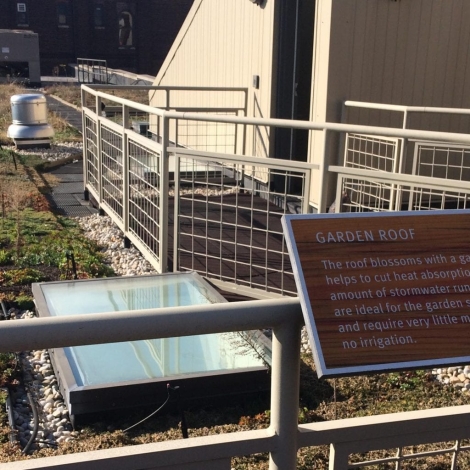The American Society of Civil Engineers promotes sustainability in the design and construction of infrastructure. In support of that work, I am pleased to announce a new, guided online course that I developed with ASCE, “Making the Case for Sustainable Infrastructure.” My course fits among the growing catalog of online resources that ASCE offers to the public and to its members. I’ll provide links below.
Register for ASCE’s online course: Making the Case for Sustainable Infrastructure.
The six-week training course launches April 27th. It will help practicing civil engineers incorporate sustainability and resilience into infrastructure development. The target audience includes mid- to senior-level engineers in decision-making roles interested in developing the technical and non-technical skills necessary to lead cross-departmental and multidisciplinary teams in developing sustainable infrastructure solutions. The course features one hour of on-demand videos each week, activities to apply the material, journaling, discussion blogging, discussion webinars, and quizzes.
As a volunteer on ASCE committees, I assisted in surveying the industry for mechanisms to support sustainable development practices. We identified four primary pathways: legislation, policies, design standards, and procurement for individual projects. We summarized our findings and described case studies in the guide “Soliciting Sustainable infrastructure.” We have made the guide, a database, and library of the case studies available to ASCE members and are planning to expand availability.
As a result of that research, we created the brief technical report “Sustainable Procurement of Infrastructure.” The report provides language that can be copied and pasted into procurement documents to incorporate more sustainable practices. This document has language addressing the top 10 topics that we thought would be the most straightforward to implement, monitor, and report on successes (we anticipated creating a second report to address additional topics). The report is about to go to the publishing department for final editing and will be available soon.
Sustainability and resilience defined
ASCE is the group that, among other things, puts together America’s Infrastructure Report Card (spoiler alert: the USA received a D+ average in 2017). And the organization has a long list of initiatives and resources related to sustainable and resilient infrastructure.
Sustainability, according to ASCE, is a set of conditions in which all of society has the capacity to improve its quality of life indefinitely without degrading economic, environmental and social resources. Sustainable development is the application of these resources to enhance the quality of life for all of society. Resilience is the capability to mitigate all-hazards risks and to recover critical services with minimum damage to public safety, the economy, and national security.
Roadmap to sustainability
ASCE’s sustainability webpage includes the “Sustainability Roadmap” designed to guide engineers in transforming the profession, searchable resources such as manuals and case studies, links to the Envision® guidance and rating system for sustainable infrastructure, and information on the “Sustainable Infrastructure Certificate Program.”
Do the right project right
The first principle of sustainable development is to “do the right project,” according to ASCE’s Policy Statement 418: The Role of the Civil Engineer in Sustainable Development. Once the project is defined, the second principle is to “Do the Project Right.”
ASCE supports the following steps to achieve a sustainable project:
- Perform life cycle assessment from planning to reuse
- Use resources wisely and minimize use of non-renewable resources
- Plan for resiliency
- Validate application of the principles
Sustainable infrastructure policy statements
ASCE recommends that owners of public and private infrastructure incorporate sustainability practices in design, construction, operations, maintenance, and deconstruction or decommissioning, according to Policy Statement #556 – Owners’ Commitment to Sustainability.
In addition, other ASCE Policy Statements focus on sustainable infrastructure, including:
#360 – Impact of Climate Change supports research, collaboration, updating design standards, and creating requirements to address climate change.
#451 – Life-Cycle Cost Analysis (LCCA) supports the use of LCCA principles in the complete design process to wholly and completely evaluate the total cost of projects.
#488 – Greenhouse Gases supports strategies to reduce GHG emissions in all lifecycle phases of infrastructure systems.
#517 – United Nations Sustainable Development Goals supports the implementation of the UN SDGs and consideration of affordable financing practices.
Other policy statements of interest
#389 – Mitigating the Impacts of Natural and Man-Made Disasters
#499 – Emergency Preparedness and Response
#500 – Resilient Infrastructure
#518 – Unified Definitions for Critical Infrastructure Resilience
#541- Post-Disaster Reconstruction of Infrastructure
About the Author
Denise Nelson, P.E., is a Civil Environmental Engineer, Certified Floodplain Manager, Envision Sustainability Professional, and a LEED AP. She has sixteen years’ experience in design and application of best practices for water, wastewater, and stormwater systems and sustainable development. Her experience includes large and small firms in the United States and New Zealand, and she is currently an Environmental Engineer at The Berkley Group.

